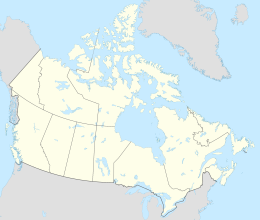Pilattuaq
| Geography | |
|---|---|
| Location | Northern Canada |
| Coordinates | 71°06′36″N 71°10′30″W / 71.11000°N 71.17500°W |
| Archipelago | Arctic Archipelago |
| Highest elevation | 365 m (1198 ft) |
| Administration | |
Canada | |
| Territory | Nunavut |
| Region | Qikiqtaaluk |
| Demographics | |
| Population | Uninhabited |
Pilattuaq (Inuktitut syllabics: ᐱᓚᑦᑐᐊᖅ[1]) formerly Scott Island[2] is an uninhabited island in the Qikiqtaaluk Region of Nunavut, Canada. It is located in Baffin Bay, off the eastern coast of Baffin Island, in the middle of Scott Inlet, north of the confluence of Clark Fiord and Gibbs Fiord which embrace Qikiqtaaluk.
Another, much smaller Scott Island lies off the southwest coast of Baffin Island, near the mouth of Keltie Inlet.
Geography
[edit]The island's steep and rugged cliffs reach up to 365 m (1,198 ft) [above sea level.[3] It is approximately 11 km (6.8 mi) in length.
One of the most notable formations on the island is The Ship's Prow, a 600 m (2,000 ft) overhanging granite wall, first climbed by Mike Libecki in the spring of 1999.[4]
Fauna
[edit]Glaucous gull and northern fulmar frequent its cliffs and shoreline.[3]
References
[edit]- ^ Pilattuaq
- ^ Pilattuaq (Formerly Scott Island)
- ^ a b "Scott Inlet". bsc-eoc.org. Archived from the original on 2011-06-12. Retrieved 2009-06-18.
- ^ "North America, Canada, Nunavut, Baffin Island, Scott Island, Ship's Prow, Solo Ascent - AAC Publications - Search The American Alpine Journal and Accidents". publications.americanalpineclub.org. Retrieved 2019-03-03.


